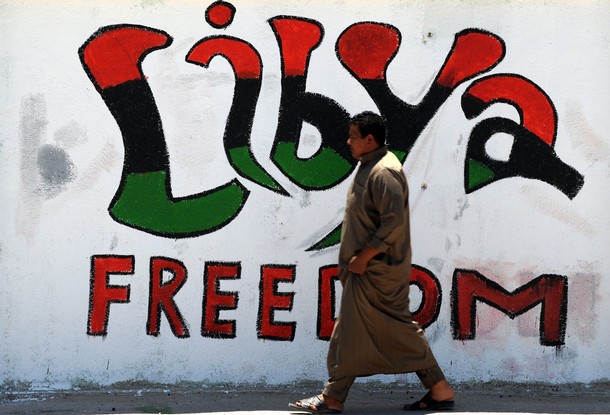
From the Editors of the Washington Post: We’ve seen across the Middle East, as in the rest of the world, that freedom isn’t something that gets “imposed. ” It is pretty much universally desired; just look at the rejoicing in Tripoli as the mantle of fear lifts. The right question for the United States and its allies isn’t whether to help oppressed people fight for freedom, it’s when. The answer will depend on the chances of success, costs of intervention and potential benefits.
The imminent collapse after 42 years of Moammar Gaddafi’s brutal and capricious regime demonstrates that even a half-hearted U.S. effort can make a big difference. Mr. Obama insisted six months ago that U.S. participation would last only “days”; he kept the connection between military means and political goals murky; he fudged rather than comply with the War Powers Resolution; he was slow to recognize the Libyan opposition.
But as British Prime Minister David Cameron and French President Nicolas Sarkozy led, Mr. Obama crucially maintained enough U.S. support to keep the NATO mission going. Libyans themselves provided the motivation and the manpower, but they could not have succeeded without U.S. help. And Mr. Obama sustained the mission despite criticism from both Democrats and potential 2012 opponents. . . .
It may be right that Libya is not a “vital national interest”; the United States managed to live with a Gaddafi dictatorship for a long time. But look at the benefits if Libya begins to move toward democracy. The momentum will help democrats in Tunisia and Egypt who are trying to shape their post-dictatorship worlds. It further isolates Syria’s holdout strongman, Bashar al-Assad. It means young Libyans may be able to envision a healthy future for themselves instead of joining terrorist groups out of frustration and anger. (photo: Getty)
Image: getty%205%2013%2011%20Libya%20Freedom%20graffiti.jpg
